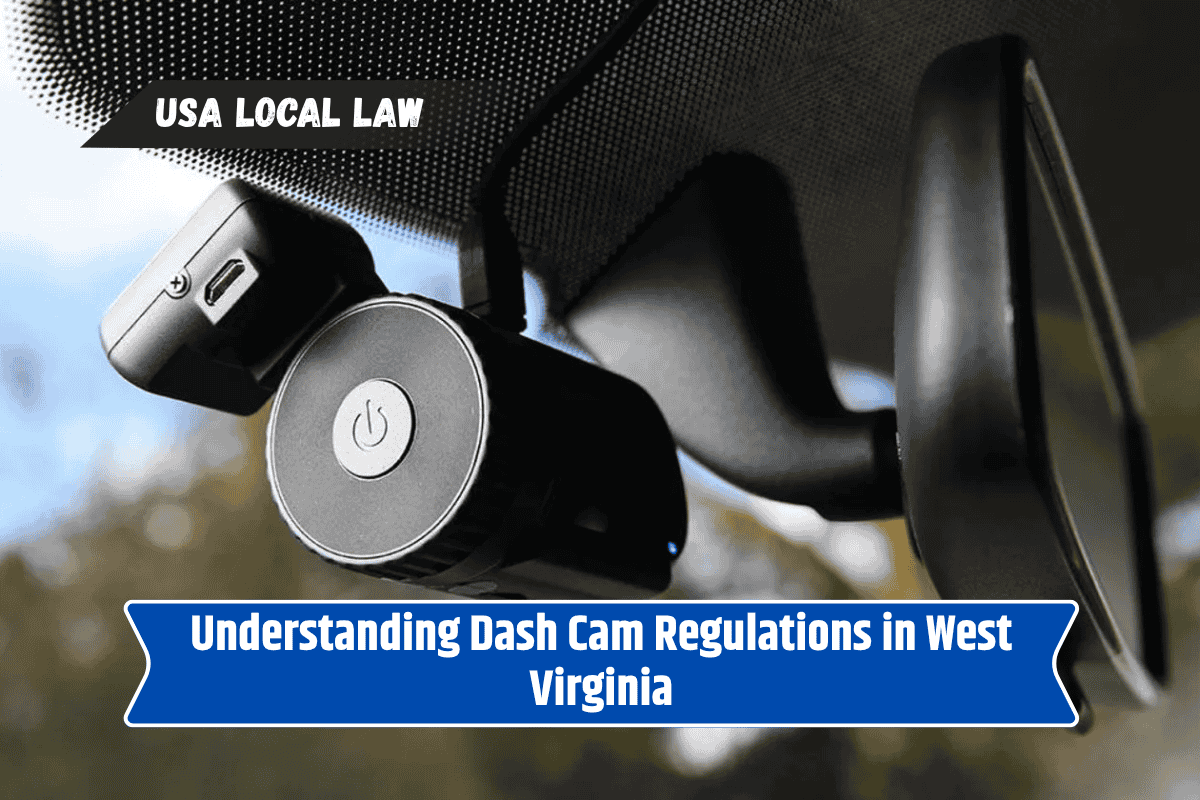Dash cams have become a popular tool for drivers across the United States. These devices can record everything that happens while you’re driving, providing useful evidence in case of an accident or dispute.
However, if you’re using a dash cam in West Virginia, it’s important to understand the local regulations to ensure you’re not violating any laws. Let’s dive into what you need to know about dash cam use in West Virginia.
What Are Dash Cams and How Do They Work?
A dash cam, short for dashboard camera, is a small device typically mounted on your vehicle’s dashboard or windshield. It records video and sometimes audio of everything that happens on the road while you drive.
Dash cams can be especially helpful in case of accidents, road incidents, or even disputes with other drivers or law enforcement. In the case of an accident, the footage could serve as key evidence in legal proceedings or insurance claims.
Are Dash Cams Legal in West Virginia?
Yes, dash cams are legal to use in West Virginia. There is no state law that prohibits the use of dash cameras in your vehicle. You are allowed to install and operate a dash cam without any legal issues, provided you follow a few general guidelines to avoid breaking other laws.
Key Regulations for Dash Cam Use in West Virginia
Although dash cams are legal, there are still some important rules and guidelines to keep in mind:
- Windshield Obstruction Laws
West Virginia law restricts the amount of obstruction that can be placed on your vehicle’s windshield. Anything that blocks the driver’s view could be considered dangerous or illegal.
If you install a dash cam, make sure it is mounted in a way that does not obstruct your view of the road, particularly your ability to see traffic signals, signs, and other important road hazards. The camera should be placed where it does not interfere with the driver’s line of sight. - Recording Audio
While recording video with a dash cam is generally legal, recording audio can be a bit more complicated. West Virginia follows one-party consent laws, which means that as long as you are part of the conversation, you can legally record it.
However, if you’re recording audio from people outside of your vehicle or other private conversations, it’s important to get consent from those involved, as they may have an expectation of privacy. It’s always best to avoid recording private conversations to stay on the safe side. - Use of Dash Cam Footage
Dash cam footage can be used as evidence in legal matters, such as traffic violations, accidents, or insurance disputes. However, if the footage involves other people or is recorded in a way that invades their privacy, it could potentially be used against you.
Always be cautious about sharing footage publicly, especially if it includes personal information or people who may not have consented to being recorded. - Data Privacy Concerns
Dash cam footage may sometimes capture private property, personal interactions, or public spaces. It’s essential to consider the privacy of others when using and sharing dash cam footage.
In the event of an accident, sharing footage with insurance companies or law enforcement is generally safe. However, posting or sharing footage online, especially if it includes identifiable information about others, could lead to privacy violations.
Can Dash Cams Be Used for Law Enforcement Purposes?
In West Virginia, like in many other states, law enforcement officers may use dash cams in their own vehicles to record traffic stops, accidents, and other incidents. If a civilian’s dash cam footage is relevant to a law enforcement investigation, it may be requested as evidence.
If you have footage that could assist law enforcement, it’s a good idea to share it with them, especially if it involves a serious incident like a crash or a crime.
Dash Cam Use in West Virginia
Using a dash cam in West Virginia is legal, but there are important regulations to keep in mind, particularly when it comes to windshield obstructions, recording audio, and privacy concerns. As long as your dash cam is mounted securely and does not obstruct your view, you should have no trouble using it.
Always be mindful of the footage you record and share to avoid violating privacy laws. Dash cams can provide valuable protection, but it’s important to follow the rules to ensure you are using them legally.
